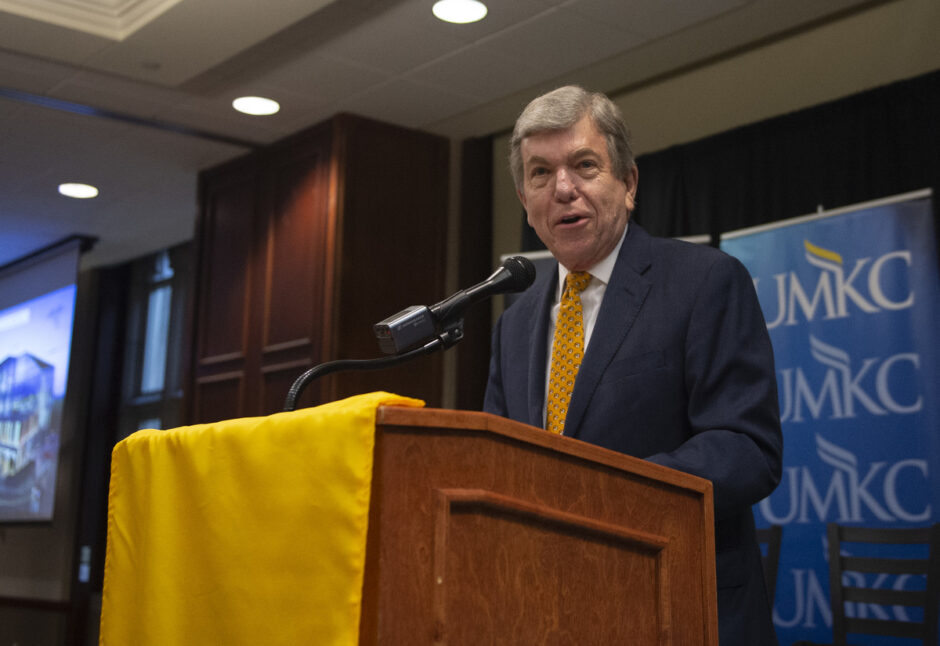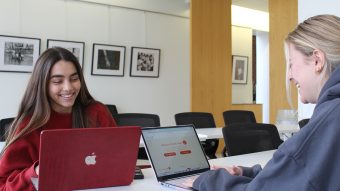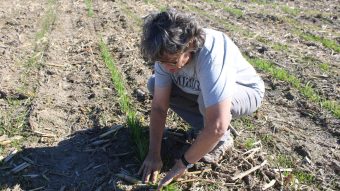June 27, 2019
Mark McDonald was about a year and a half when his father, Robert, knew something was wrong. Mark has Duchenne muscular dystrophy, a rare neurological genetic disease characterized by continual muscle breakdown and weakness. Right now, there is no cure for Mark’s condition.
“A Duchenne child is like an ice sculpture of your boy, and what happens with Duchenne is your boy is melting,” said McDonald, a physician who practices in Jefferson City. “Fifteen years ago, there was no way you would be able to have gene therapy in a child with Duchenne. Now, we see that is not the case. It is not blind hope. This is based on real science, real progress.”
Changing lives like Mark’s by accelerating medical breakthroughs and increasing collaborations between scientists and industry partners of this generation and the next is what’s driving the University of Missouri System to build the NextGen Precision Health Institute at Mizzou.
The facility will host more than 60 principal investigators and their teams in areas such as engineering, medicine, veterinary medicine, animal sciences, and arts and science. A groundbreaking was held on June 21, and the facility is expected to be completed by October 2021.
Finding breakthroughs
Among those at the groundbreaking was Missouri Senate Majority Leader Caleb Rowden. The Columbia representative worked with his colleagues at the Missouri State Capitol to help secure $10 million in state funding for the institute — one that could possibly cure diseases close to home.
“How can we solve problems like cancer, and neurological diseases that have affected numerous people in my family?” Rowden said at the groundbreaking. “I had three grandparents diagnosed with Alzheimer’s, so this sort of research is near and dear to my heart. These problems might be answered within the walls of this beautiful building that we are celebrating today.”
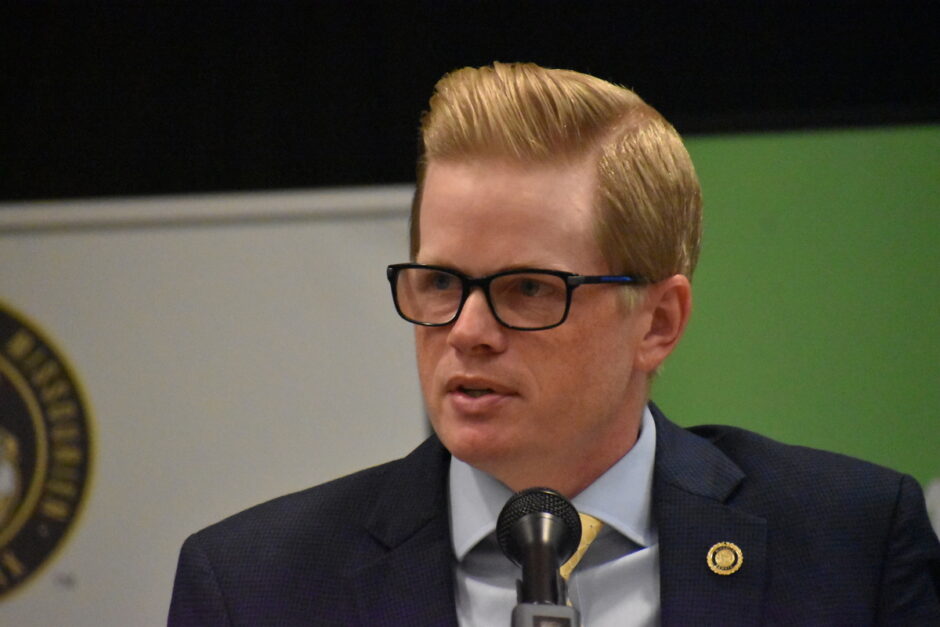
Lyrissa Lidsky, dean of the MU School of Law, also attended the event — her trademark red hair nearly all gone. Lidsky, a breast cancer survivor, endured months of chemotherapy following her diagnosis in December 2018. Her cancer is now in remission, and she hopes the complex will lend to more medical breakthroughs.
“I know the power of medical breakthroughs to change lives because I’m now cancer free as a result,” Lidsky said. “I want other people in the future to have the same positive prognosis that I have because of the work of this complex.”
See related stories: NextGen Precision Health
Taking medical research to the next level
For the past 17 years, Wes Warren, a professor of animal sciences in the MU College of Agriculture, Food and Natural Resources and in the Christopher S. Bond Life Sciences Center, has deciphered the genetic codes of many species to better understand human biology. His current interest is to use genomic methods to study the sex differences seen in many human diseases so that physicians can better tailor treatments for females or males.
“The most exciting part to me is the collaborative matrix this new endeavor offers,” Warren said. “The fact that I can go there, work with cutting edge instruments and pick the minds of resident scientists will enhance my own research as well as that of my colleagues.”
Elizabeth Loboa, vice chancellor for strategic partnerships at MU and dean of the MU College of Engineering, has been heavily involved with the creation of the NextGen Precision Health Institute since the beginning. She is excited about the interdisciplinary collaboration that will result in treatments affecting people personally.
“The new institute is the shining star of such collaborations because its reach is so great — in terms of research outcomes, experiential learning for students and the potential impact on human life,” Loboa said. “Seeing it all come together was extraordinarily moving for me as a vice chancellor, a dean, an engineer and a citizen of this state. Serving on this project has been an honor.”
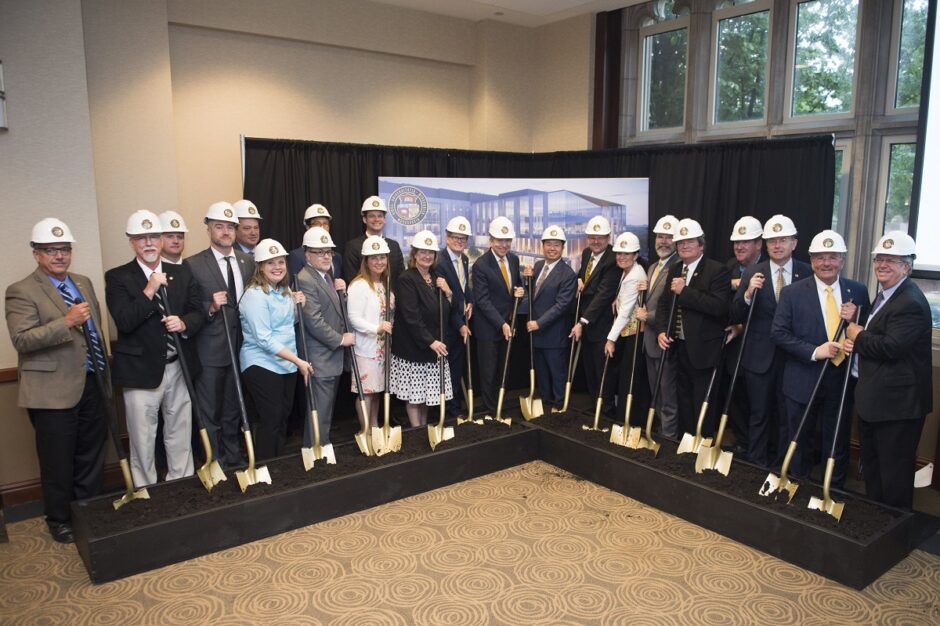
Training the next generation
Jessica Kawakami, a post-doctoral fellow from the University of Missouri-Kansas City, sees the NextGen Precision Health Initiative as a way for students to truly experience the Missouri Method of learning by doing since they will work on every stage of the research process — from conception to implementation.
“What’s interesting about a building like that is that it’s more similar to industry,” Kawakami said. “Instead of just focusing on basic research, you’re going to be able to see a research project go from its inception all the way to its translation into impacting patients. I think that’s a big deal for educating students, to understand what their basic research will eventually be applied to.”
For Alyssa Weyl, a junior chemistry major at Missouri University of Science and Technology, this initiative has been and always will be about collaboration. She has never seen all four UM campuses brought together for something as monumental as the NextGen Precision Institute, and she is grateful to share in the moment.
“It definitely opens up more opportunities for learning, not only from professors from other universities, but from other students as well who’ve had different experiences,” Weyl said. “It may bring about ideas from one campus that can further a project happening in another campus. That collaboration is definitely going to further our research a lot.”
Hands-on training
MU Chancellor Alexander N. Cartwright said the NextGen Precision Health Institute will be vital in training students to be the next generation of leaders in emerging fields.
“In addition to supporting our researchers, this university, this building will be a critical hub for education, innovation and entrepreneurship for our students,” Cartwright said. “It will provide the essential hands-on opportunities we need to develop the next generation of leaders in growing fields such as machine learning, artificial intelligence and data science — and even in jobs we can’t yet imagine. This is what will make Missouri a global leader in health care, medicine, business and so much more.”
A global impact
Wally Pfeffer attended the groundbreaking as an ambassador of the Columbia Chamber of Commerce. Pfeffer, a Mizzou alumnus, said the chamber is excited about the impact of the new research center.
“It’s an opportunity to feature the university’s strengths, not only here in Columbia but across the state and the nation,” Pfeffer said. “This project is going to tie together so many important aspects of the university, and those aspects are all run by people who live here, work here, play here, shop here and maybe start businesses here at some point in their careers. This will attract talent from all over the world and will make Columbia a better community.”
Missouri State Representative Kip Kendrick, a Columbia representative, said the research that comes out of this facility will affect everyone across the world and advance health care technology.
“It’s great for mid-Missouri and Columbia, but more importantly it’s going to be a research center that drives Missouri forward,” Kendrick said. “There’s been such focus at Mizzou in recent years about getting more research into production faster, and this is going to be another opportunity to partner with a lot of different entities across the state and a lot of different private organizations across the state to get research that is performed at the university into production and grow the economy of Missouri.”
Future of health care
U.S. Senator Roy Blunt, one of Missouri’s two U.S. Senators, is excited about the university’s decision to be a part of the future of health care.
“I think if things work as they should, and if we make the priority that the university has decided to make here in other places, it will be amazing five years from now the things we are talking about as just a part of the daily application of what can happen in health care,” Blunt said. “This is clearly the future of health care, and so exciting for the University of Missouri and our state to make such a big decision that we are going to be a part of that future.”
